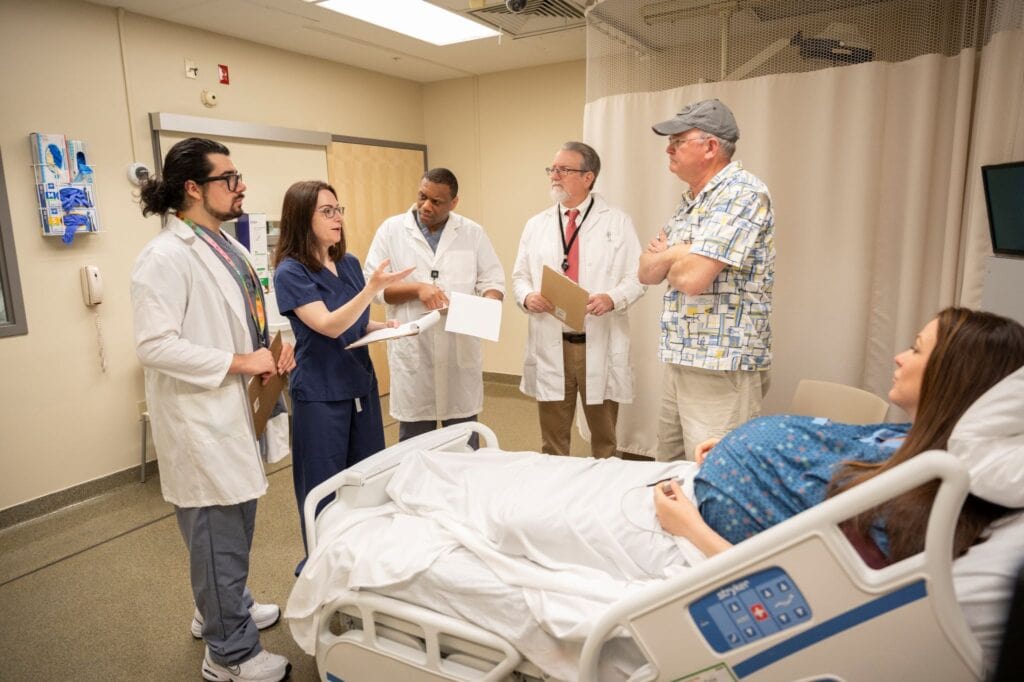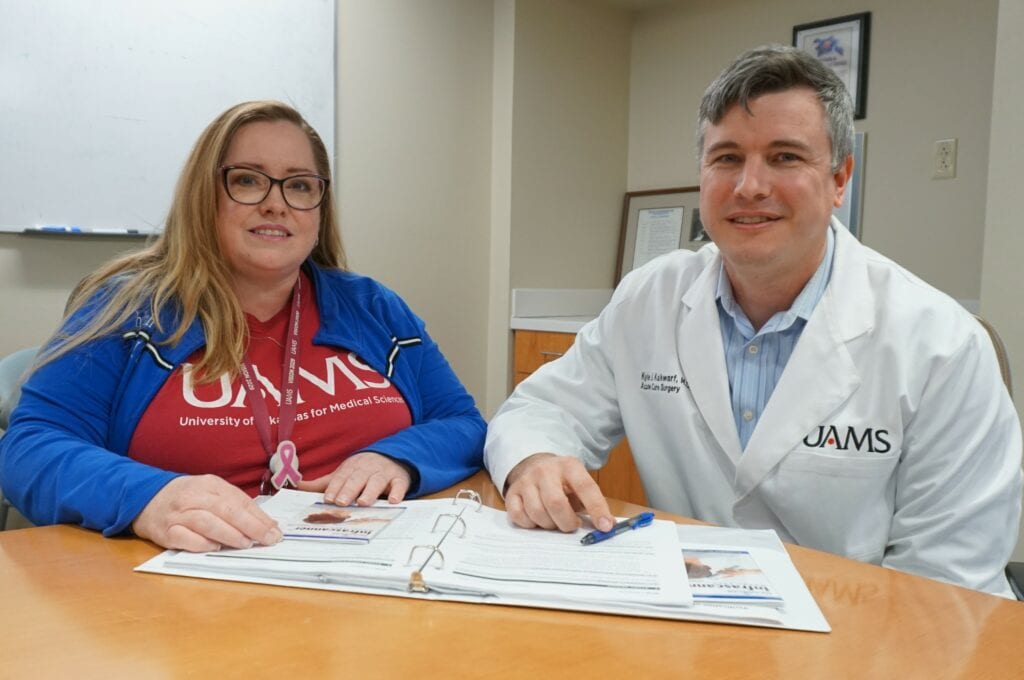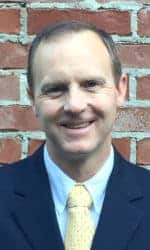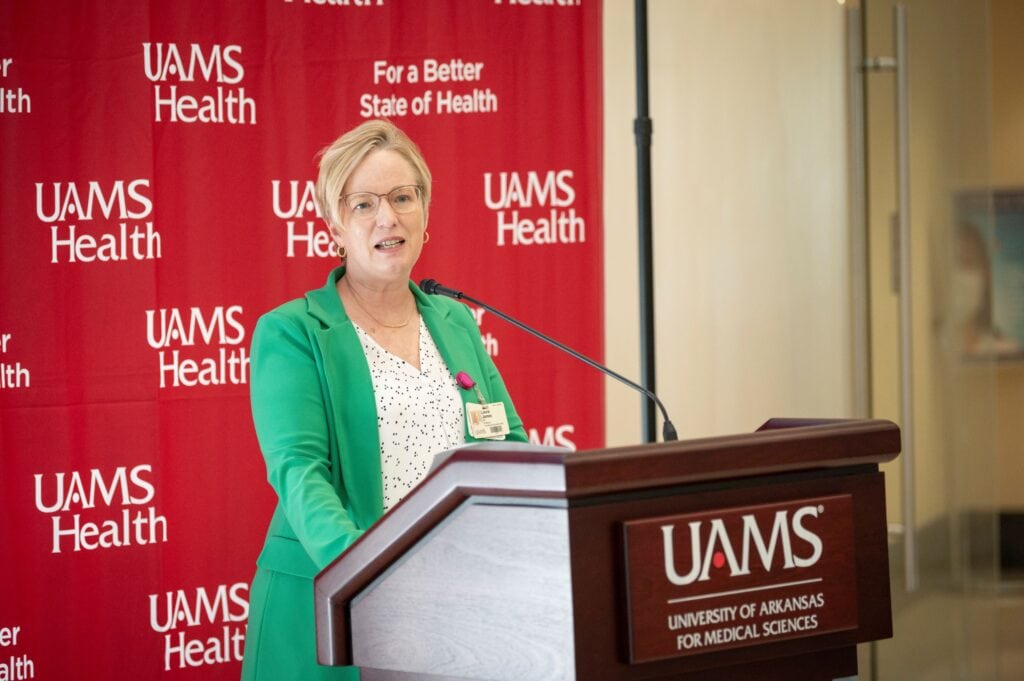
The University of Arkansas for Medical Sciences (UAMS) Translational Research Institute announced today that it will receive $31.7 million to continue its role in a national effort to accelerate discoveries for the toughest health challenges facing Arkansans and people across the United States.
The funding by the National Center for Advancing Translational Sciences (NCATS) at the National Institutes of Health (NIH) puts UAMS among an elite group of research centers. The highly competitive Clinical and Translational Science Award (CTSA) goes to only about 60 research institutions nationwide.
“This award attests to the unique capabilities of UAMS researchers in advancing discoveries and treatments,” U.S. Sen. John Boozman said in a statement provided by his office. “The institute has helped put UAMS in position to conduct exceptional, innovative science that’s on par with the best research institutions in the country. We can be proud this outstanding work is occurring right here in our state to improve the lives of Arkansans and all Americans.”
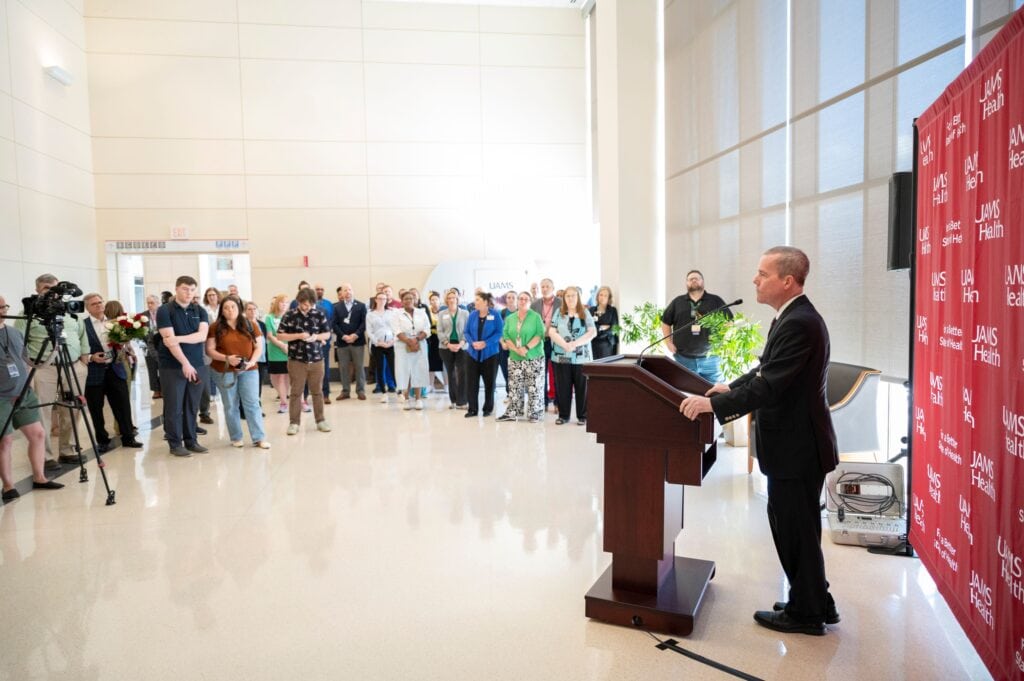
UAMS Chancellor Cam Patterson, M.D., MBA, thanked Boozman for his continued support of the CTSA program and noted that UAMS has pledged matching funds to significantly enhance the award’s impact on UAMS research.
“The Translational Research Institute has been a driving force for research innovation that speeds the pace of research in pursuit of health solutions,” Patterson said. “Under the strong leadership of Dr. Laura James, the institute has developed and will now implement its terrific plan to build on its vital work of the past five years.”
The CTSA includes a primary grant, award UM1 TR004909, which totals $26.9 million over seven years, and two linked grants, K12 TR004924 and T32 TR004918 for training early career researchers, which total $4.73 million over the next five years. James is the principal investigator on the UM1 grant, which supports key aspects of research programs that support investigator training, clinical trials, community engagement, informatics, statistics and team science to ensure that UAMS researchers have access to state-of-the-art approaches for clinical and translational research.
James said she is excited to have the award and ready for the institute to begin implementing its plans.
“This a great day for UAMS and a great day for Arkansas,” said James, UAMS associate vice chancellor for Clinical and Translational Research. “We are very proud to continue to be part of this distinguished clinical and translational research program, which ensures that Arkansas has a leading role in research that will allow earlier detection of diseases and provide better medical treatments in the future. Clinical research drives changes in how future patients are treated, and our aim is to create and lead high quality research that is responsive to the health needs of Arkansans.”
The institute supports novel research that addresses significant health challenges in Arkansas, such as high blood pressure, pain management, diabetes and obesity, substance abuse, mental health and rare diseases. It is also expanding opportunities for UAMS researchers to participate in multisite clinical trials, including collaborative research with other CTSA-funded centers.
The Translational Research Institute provides support for the research staff and faculty needed for leading clinical trials, research training programs for postdoctoral students and faculty, and pilot funding and mentorship support to help early-career faculty successfully apply for NIH grants and launch their research careers.
“We believe that we are the perfect state for this type of grant award; although Arkansas is small, we have the advantage of working collaboratively together to solve health challenges.” James said. “Our research successes will be shared with other states that have similar populations and health challenges.”
Daniel Voth, Ph.D., UAMS vice chancellor for Research and Innovation, said being part of the prestigious CTSA research consortium elevates the entire UAMS research enterprise.
“The CTSA helps us recruit exceptionally talented researchers and it attracts additional funding because new opportunities will come about that are specific to institutions with CTSA programs,” Voth said.
The institute was initially funded with a five-year CTSA in 2009, and it was fully funded again with a five-year award in 2019. The new award will continue to support strategies to optimize health through research and will increase support for programs that engage many populations around the state in research, including those living in rural areas of the state, where access to health care may be limited. TRI and other institutional partners will continue to integrate research participation opportunities into UAMS clinics located throughout the state.
The institute will leverage the new CTSA grant over the next seven years to address health equity as well as rural health challenges – its primary focus over the past five years.
With its health equity focus, the institute will support research projects that improve medical referral patterns to ensure that all Arkansans have access to medical care, James said.
“UAMS and our partnering institutions, Arkansas Children’s Research Institute (ACRI) and the Central Arkansas Veterans Healthcare System, have tremendous resources for medical care, including care for uncommon diseases. Ensuring that all Arkansans benefit from these resources – also known as health equity – is one priority of the CTSA program,” James said.
The training grants support:
- The K12 Mentored Research Career Development Scholar Award Program, which will receive $3.78 million over five years. This premier CTSA program provides promising early-career faculty researchers with two years of translational science training, salary support, seed funding strong mentoring to help jump-start their research careers. It is co-directed by UAMS’ John Arthur, M.D., Ph.D., Elisabet Borsheim, Ph.D., and Mario Schootman, Ph.D.
- The T32 Health Sciences Innovation and Entrepreneurship Training Program, which will receive $952,975 over five years. This pioneering program includes a first-of-its kind partnership with the Sam M. Walton College of Business at the University of Arkansas, Fayetteville, that teaches postdoctoral fellows at UAMS how to commercialize their discoveries. It is led by UAMS’ John Imig, Ph.D.
The institute’s success has been sustained with significant UAMS support and from its partners, ACRI, and CAVHS, as well as important partnerships involving the UAMS Northwest Regional Campus and the University of Arkansas, Fayetteville. In addition, the institute has fostered research collaborations with numerous grassroots community organizations and individuals through its Community Engagement Core.
UAMS is the state’s only health sciences university, with colleges of Medicine, Nursing, Pharmacy, Health Professions and Public Health; a graduate school; a hospital; a main campus in Little Rock; a Northwest Arkansas regional campus in Fayetteville; a statewide network of regional campuses; and eight institutes: the Winthrop P. Rockefeller Cancer Institute, Jackson T. Stephens Spine & Neurosciences Institute, Harvey & Bernice Jones Eye Institute, Psychiatric Research Institute, Donald W. Reynolds Institute on Aging, Translational Research Institute, Institute for Digital Health & Innovation and the Institute for Community Health Innovation. UAMS includes UAMS Health, a statewide health system that encompasses all of UAMS’ clinical enterprise. UAMS is the only adult Level 1 trauma center in the state. UAMS has 3,275 students, 890 medical residents and fellows, and five dental residents. It is the state’s largest public employer with more than 12,000 employees, including 1,200 physicians who provide care to patients at UAMS, its regional campuses, Arkansas Children’s, the VA Medical Center and Baptist Health. Visit www.uams.edu or www.uamshealth.com. Find us on Facebook, X (formerly Twitter), YouTube or Instagram.

